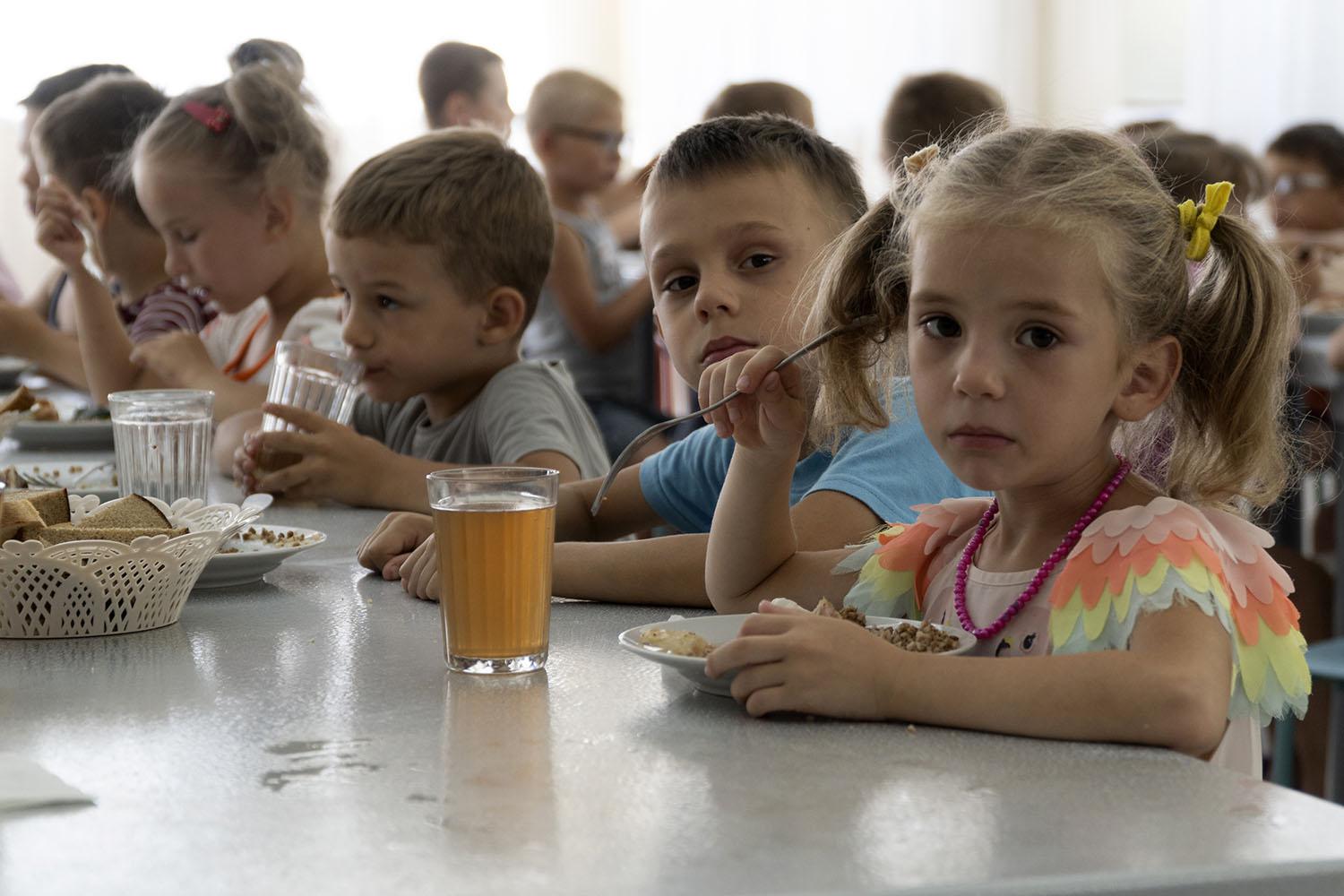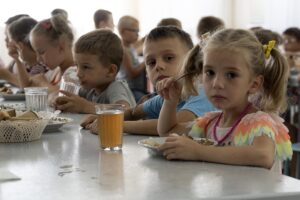
How Russian children are taken from Ukraine by Moscow?

One of the most contentious aspects of the conflict is Russia’s open attempt to adopt Ukrainian children and raise them as Russian.
Numerous kids have been discovered in orphanages in the Donbass separatist territories that Russia supports as well as in the basements of war-torn towns like Mariupol. They consist of “children of the state,” also known as those living in institutions or with foster families, whose parents were slain by Russian shelling.
Russia asserts that these kids don’t have parents or other adult caretakers to take care of them or that they aren’t reachable. However, it was discovered that officials had deported Ukrainian children without their parent’s permission to Russia or Russian-occupied areas, lied to them that their parents didn’t want them, exploited them for propaganda, and provided them with Russian families and citizenship.
Raising war orphans in a different nation or culture, regardless of whether they have parents, can be considered a form of genocide, an effort to obliterate the very character of an adversary country. Vladimir Putin, the president of Russia, who has openly endorsed the adoptions, is also personally implicated, according to the prosecution.
Former U.S. Ambassador-at-Large for War Crimes Issues Stephen Rapp, who is advising Ukraine on prosecutions, said, “It’s not something that occurs spur of the moment on the battlefield. Therefore, it is much easier for you to assign blame at the top level in this situation.
Even where parents are dead, Rapp said, their children must be sheltered, fostered or adopted in Ukraine rather than deported to Russia. Without the permission of the child’s country of origin, which Ukraine does not have, Russian law forbids the adoption of foreign children. Putin, however, signed a decree in May that makes it simpler for Russia to adopt and grant citizenship to Ukrainian children who lack parental care, and that makes it more difficult for Ukraine and living relatives to gain those children back.
Russia also has prepared a register of suitable Russian families for Ukrainian children and pays them for each child who gets citizenship — up to $1,000 for those with disabilities. It holds summer camps for Ukrainian orphans, offers “patriotic education” classes and even runs a hotline to pair Russian families with children from Donbas.
According to Petro Andryushchenko, a mayor’s advisor in Mariupol, hundreds of minors were allegedly kidnapped from just that city. Because they are being taken away by Russian forces, “We don’t know if our children have an official parent or (stepparents) or something else.”
The reality that many children in Ukraine’s so-called orphanages are not actually orphans complicates the situation. The majority of the state’s children “are not orphans, have no serious illness or disease, and are in an institution because their families are in difficult circumstances,” the Ukrainian government admitted to the U.N. before the conflict.
But Russia presents its adoption of Ukrainian children as a kind gesture that provides vulnerable children with new families and access to healthcare. Local officials are seen hugging and kissing them while giving them Russian passports in Russian state media.
The precise number of Ukrainian minors sent to Russia cannot be determined, although Ukrainian authorities say there were close to 8,000. Although Russia hasn’t provided a total, authorities frequently report the arrival of Ukrainian orphans in Russian military aircraft.
More than 1,000 Ukrainian children were in Russia, according to Maria Lvova-Belova, the Russian Children’s Rights Ombudswoman, in March. She claimed that over the course of the summer, more than 130 Ukrainian children had been granted Russian citizenship, and 120 Russian families had filed for guardianship.
Since then, numerous more have arrived, including a group of 234 in early October.
According to Lvova-Belova, Russia must assist these kids in healing from the trauma that has caused them to have trouble resting, cry uncontrollably at night, and seek solace in bomb shelters and basements. She admitted that when a group of 30 kids from Mariupol’s basements were brought to Russia, they initially sang the Ukrainian anthem and exclaimed, “Glory to Ukraine!” However, she claimed that as of late, their disapproval has “transformed into a love for Russia,” and she herself has adopted one, a teenager.







